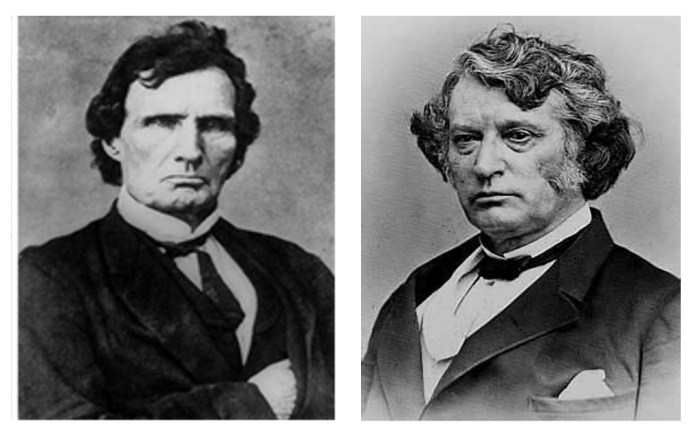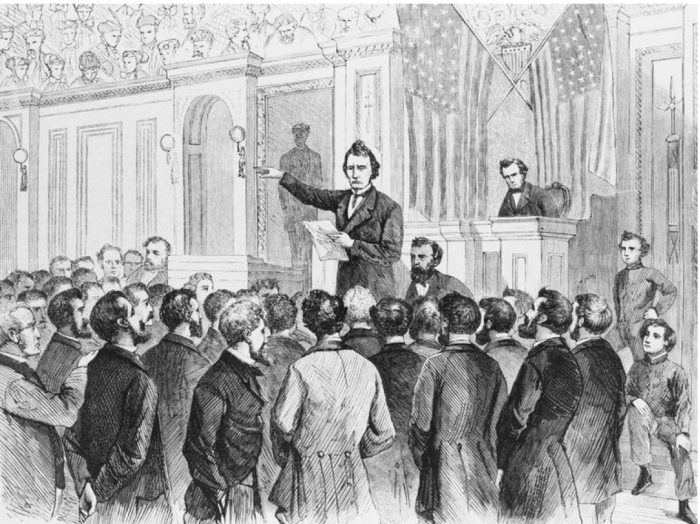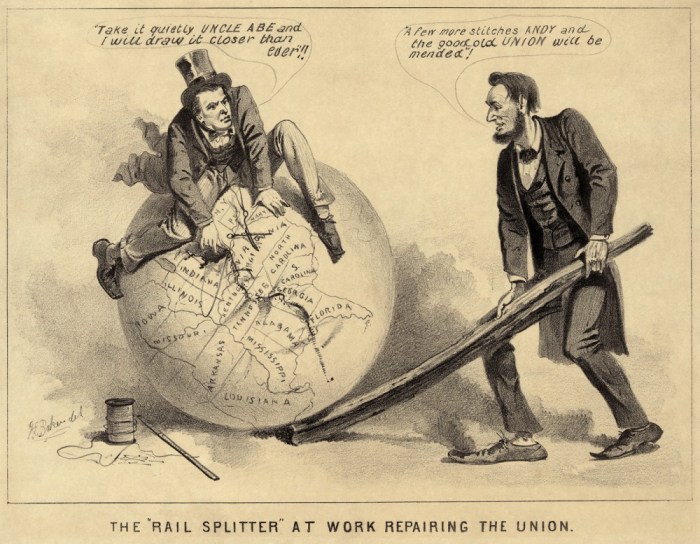Radical republicans views were closest to those of – Radical Republicans’ perspectives most closely resembled those of Liberal Republicans. These factions shared common ground on various policy positions, shaping the political landscape of the United States.
Their ideologies centered around progressive reforms and a strong federal government, influencing the Reconstruction era and post-Civil War developments.
Radical Republicans’ Policy Positions

The Radical Republicans emerged as a dominant force in the Republican Party during the Reconstruction era. Their policy positions were characterized by a commitment to the protection of civil rights for African Americans, the expansion of federal power, and the punishment of former Confederates.
Reconstruction, Radical republicans views were closest to those of
- Enacted the Freedmen’s Bureau to provide aid to freed slaves and refugees.
- Passed the Civil Rights Act of 1866 to grant citizenship to African Americans and protect their civil rights.
- Supported the ratification of the 14th and 15th Amendments, which guaranteed equal protection under the law and the right to vote for African American men.
Federal Power
- Favored a strong federal government to enforce civil rights and protect the rights of African Americans.
- Supported the creation of the Freedmen’s Bureau and the use of federal troops to enforce Reconstruction policies.
- Opposed states’ rights and the autonomy of the former Confederate states.
Punishment of Former Confederates
- Advocated for the disenfranchisement of former Confederate leaders and the confiscation of their property.
- Supported the creation of the Joint Committee on Reconstruction to investigate the South and punish those responsible for the Civil War.
- Opposed the lenient Reconstruction policies of President Andrew Johnson.
Comparison with Other Political Views

Conservative Republicans
Conservative Republicans generally opposed the Radical Republicans’ policies, arguing that they were too radical and would lead to federal overreach.
- Supported states’ rights and the autonomy of the former Confederate states.
- Opposed the use of federal troops to enforce Reconstruction policies.
- Favored a more lenient Reconstruction policy that would allow the South to rebuild without federal interference.
Liberal Republicans
Liberal Republicans shared some of the Radical Republicans’ goals, such as the protection of civil rights for African Americans. However, they were more moderate in their approach and opposed the Radical Republicans’ more radical policies.
- Supported the ratification of the 14th Amendment but opposed the 15th Amendment, which granted voting rights to African American men.
- Favored a more conciliatory approach to Reconstruction that would allow the South to rebuild without federal interference.
- Opposed the use of federal troops to enforce Reconstruction policies.
Historical Context and Influences: Radical Republicans Views Were Closest To Those Of

The Radical Republicans emerged during the Reconstruction era, a period of significant political and social upheaval following the Civil War.
Political Factors
- The Radical Republicans were a product of the Republican Party’s victory in the Civil War.
- They were motivated by a desire to punish the South and protect the rights of African Americans.
- They were opposed by the Conservative Republicans, who favored a more lenient Reconstruction policy.
Social Factors
- The Radical Republicans were influenced by the abolitionist movement and the growing demand for racial equality.
- They were also influenced by the experiences of African Americans during the Civil War and Reconstruction.
- They were committed to ensuring that African Americans had the same rights and opportunities as white Americans.
Economic Factors
- The Radical Republicans supported policies that would promote economic growth and prosperity for all Americans.
- They favored a strong federal government that could regulate the economy and protect the rights of workers.
- They opposed the economic policies of the Conservative Republicans, which they believed would benefit the wealthy at the expense of the poor.
Impact on Reconstruction and Post-Civil War Era

The Radical Republicans had a significant impact on the Reconstruction era and the post-Civil War era.
Reconstruction, Radical republicans views were closest to those of
- The Radical Republicans’ policies helped to establish the principle of equal rights for African Americans.
- They also helped to ensure that the South would be rebuilt in a way that would benefit all Americans.
- However, their policies were also controversial and led to a backlash from white Southerners.
Post-Civil War Era
- The Radical Republicans’ legacy is still debated today.
- Some historians argue that their policies were too radical and led to the failure of Reconstruction.
- Others argue that their policies were necessary to protect the rights of African Americans and ensure that the South would be rebuilt in a way that would benefit all Americans.
FAQ Guide
What were the key policy positions of Radical Republicans?
Radical Republicans advocated for the abolition of slavery, equal rights for African Americans, and a strong federal government.
How did Radical Republicans differ from Conservative Republicans?
Radical Republicans were more progressive and supported a stronger federal role in social and economic affairs, while Conservative Republicans favored limited government intervention.
What factors influenced the emergence of the Radical Republican movement?
The Radical Republican movement was shaped by the political, social, and economic turmoil of the Civil War and Reconstruction era, as well as the influence of key individuals such as Thaddeus Stevens and Charles Sumner.